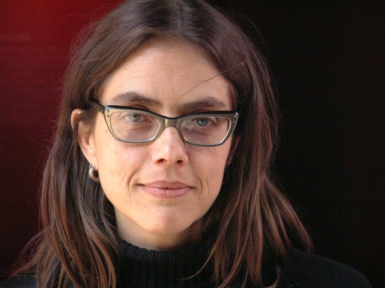With a work turned to the relations of intertextuality between photography, text, video, and cinema, Rosângela Rennó applies to texts the same working system that she applies to images. When manipulating a photograph, she removes its contrast or changes its color, so as to create an opaqueness that makes it difficult to read. In her work with journalistic texts, she makes cuts, eliminating references of geography, time, and identity. She molds them according to her intention of making them fit to represent not just an event, or a character, but rather any of those.
Her Arquivo universal, the video Espelho diário, and other of her works that explore narratives, are inventories of erased and rewritten documents. Upon reducing the “journalistic” condition of the text, the artist provides it with a narrative openness that brings it closer to fiction. The alterity in the oeuvre of Rosângela Rennó is, therefore, an anonymous collectivity devoid of any precise identity. Her operations of reduction turn image and text into empty spaces, potentially filled up by the viewer. What used to be a newspaper article becomes a mirror. “To me, the blanks and amnesias are more interesting than memory,” she says.
Rosângela Rennó features in the series Identidade/Alteridade [Identity/alterity], a curatorial section of FF>>Dossier that investigates poetics structured around dialogues between the artist and the world. As Daniela Bousso—author of the Essay From Photographic Image to Image in Motion: Rosângela—put it, “The archives, libraries, collections, albums, the ‘trouvé’ characters of Rosângela Rennó are on their way, for over two decades, to becoming part of a large, albeit deconstructed narrative.”
Further info on this artist available at the collection
